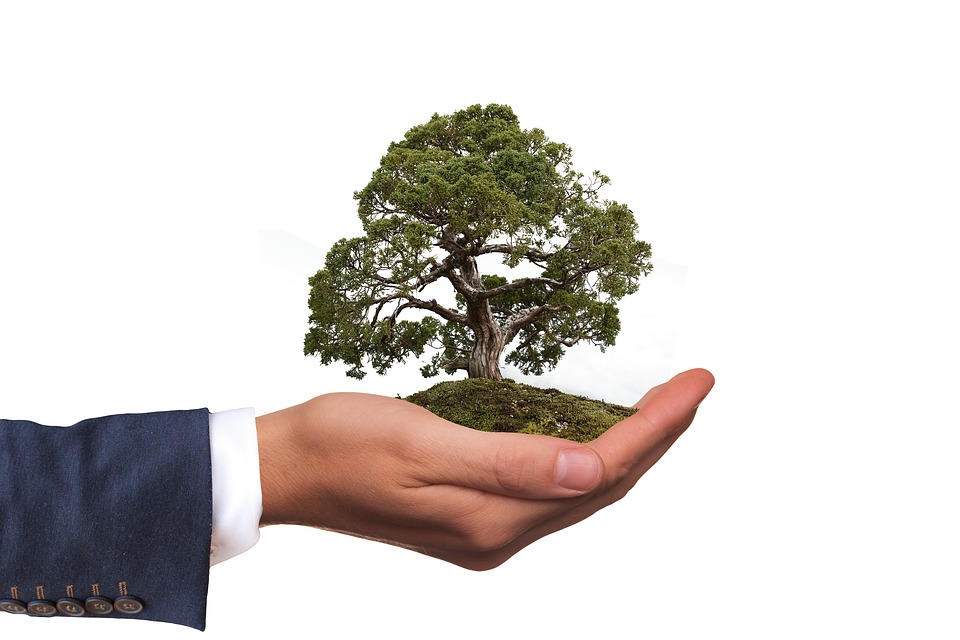
With scientists issuing dire warnings about the consequences of global warming, many folks try to do their part in reducing their carbon footprint. But simply opting to recycle instead of tossing aluminum cans in the rubbish bin only goes so far. Converting to truly sustainable living requires a bit more innovation and creativity.
Fortunately, going greener doesn’t require joining a waste-free commune. Making simple changes to daily routines will help preserve the planet we all share. Consider these tips for making your own home eco-friendlier.
1. Take a Walk
Those lucky enough to live within easy walking or biking distance to their workplaces should take advantage of this opportunity to reduce vehicle emissions. Obviously, inclement weather may make commuting by foot or pedal power impractical at times. But do seize warm, sunny days as a chance to burn calories while protecting the planet.
If you live too far away to ride shank’s mare to work, consider carpooling with coworkers who live nearby or en route. You’ll form deeper camaraderie with your workmates this way while reducing carbon emissions. If carpooling fails as an option, try using public transportation anytime it’s available.
2. Ditch the Plastic Bags
Some states like California have enacted legislation banning plastic bags, but residing elsewhere in the nation offers no excuse for contributing to the Pacific garbage patch. Invest in reusable bags to take to market. These bags won’t break nearly as readily, which eliminates smashing that newly purchased bottle of Chardonnay on the sidewalk outside the store. And since you wash your produce before you consume it anyway, avoid using a separate plastic bag for each pepper or head of lettuce.
3. Seek New Ways to Reuse, Not Just Recycle
While recycling helps reduce the amount of waste clogging our streams, lakes and oceans, many people overlook the value of simply re-purposing worn household items. Even recycling uses some energy — someone has to drive cans and bottles to the processing plant, increasing carbon emissions. If a tired object can serve a different purpose, let it do so instead of spending money on other products soon to be tossed too.
If your last order of take-out Moo Goo Gai Pan came in a plastic container, wash it and use it to save leftovers or to schlep a sandwich to work for lunch. Old toothbrushes make the perfect tool for cleaning shower grout and eliminating those nasty water stains around faucets. Cut up the Amazon boxes your holiday gifts arrive in and use them as separators to keep your favorite ornaments safe from breakage until decorating season rolls around again.
4. Eat Like a Locavore
Just as recycling requires trucks to transport, so do the fruit and veggies at your local market. Cut down on transportation costs by purchasing produce when it comes into season, and frequent local farmer’s markets whenever possible.
5. Kiss Chemical Cleaners Goodbye
Cleaning your home with products filled with toxins defeats the purpose of disinfecting, so cut your carbon footprint by making natural cleansers using vinegar, baking soda, clear dish soap and water. You’ll save money and potentially keep your family free of possible contamination from dangerous substances.
6. Opt for Reusable Items
Did you know that the average American uses up to 57 paper towels per day to wipe up counter messes? This process contributes to deforestation, which decreases overall air quality. Opt for washable microfiber cloths to keep your kitchen surfaces safe while practicing environmental awareness.
7. Go Paperless
Paying bills via check went out of vogue sometime back in the 90’s. Going paperless with all your bills should be a no-brainer.
8.Get Those Batteries out of the Drawer
Far too many of us carelessly toss old batteries into junk drawers, figuring we’ll recycle them someday. Not only do battery chemicals damage the environment, but they may also cause a potentially fatal house fire. Instead, take used batteries to a recycling center that can accept them to keep your family safer and the planet greener.
9. Upgrade Your Thermostat
If you casually step outside in the morning without turning down the heat, you’re incurring weightier electric bills while contributing to environmental issues. Instead, install a programmable thermostat that automatically reduces energy use during the hours when you’re not home to save both money and the planet.
10. Help a Stranger in Need
How many of us have upgraded our cell phones so often that we have several lying around the house? Gather them up and donate them to a domestic violence shelter versus tossing them. You’ll help others while lending Mother Earth a hand, as heavy metals in discarded electronics may contaminate ground water.
Here’s to an Environmentally Healthy Home!
We all have a role to play when it comes to averting environmental damage caused by modern conveniences. By learning how to re-purpose household items — either for our use or for others — we can save precious resources from being wasted. Making choices with the health of the planet in mind will leave the world a far cleaner place for our children.
Kate is a health and political journalist. You can subscribe to her blog, So Well, So Woman, to read more of her work and receive a free subscriber gift! https://sowellsowoman.com/about/subscribe/
















